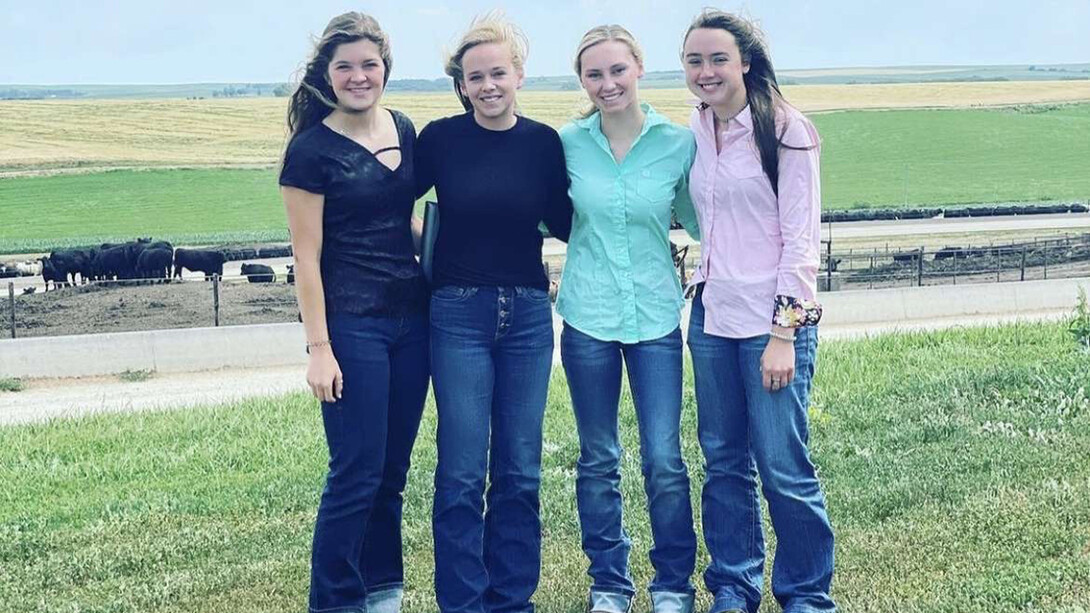
A trio of Huskers recently helped protect Nebraska producers from the threat of disease outbreak in cattle herds.
Working with the Great Plains Veterinary and Educational Center near Clay Center, the three University of Nebraska–Lincoln students assisted producers by developing operation-specific, secure beef supply plans to safeguard livestock and the economic health of the operations.
The project, which protected nearly 850,000 head of cattle under Secure Beef Supply plans, was completed by students Neligh Andersen, Tatiana Jones and Ashtin Kaumans. In the event of a contagious livestock disease, the plans help producers limit exposure to disease, safely transfer cattle to another location and maintain business continuity.
The students spent the summer visiting producers statewide, where they identified and recommended steps feed yard owners and managers could take to increase biosecurity for operations affected by movement restrictions during the event of a devastating disease outbreak.
“I started to notice how endemic livestock diseases in other countries could affect our beef industry in the United States, and I really want to help sustain food production as a veterinarian and make sure that outbreaks don’t happen here in the United States,” said Kaumans, a senior animal science student with a pre-vet option.
“This internship really opened my eyes to how devastating any exotic disease could be to the livestock industry and the importance of teaching people what these diseases can do, especially with 15% of our exports being livestock-related.”
Prior to embarking on producer consultations, the students trained with Great Plains Veterinary Educational Center veterinarians Brian Vander Ley, Rebecca Funk and Halden Clark. Working strictly with feed yards, the interns made their way across Nebraska, starting in the Panhandle and working their way to central- and eastern-based operations.
Their main focus was to encourage producers to self-assess their operation and brainstorm ways to enhance plans, specifically focusing on halting cross-contamination for foot and mouth disease protection. They covered many aspects of feedlot operations, including personnel trainings, and logistics such as public access points, bio-secure entry and exit procedures, cleaning of livestock trucks and trailers, feed storage and deliveries, wild animal control and logging inventory.
Andersen, a sophomore animal science major in the Nebraska Beef Industry Scholars program, said her lifelong dream of becoming a veterinarian was solidified through her experience with the Great Plains Veterinary Educational Center.
“This internship has made me even more excited to get out in the industry and walk through feed yards, talk to industry leaders and innovators about their challenges, feedstuffs and have the opportunity to advocate equally to producers and consumers about the beef industry,” she said.
The Secure Beef Supply Plan is a resource that provides guidance for Nebraska livestock producers.







